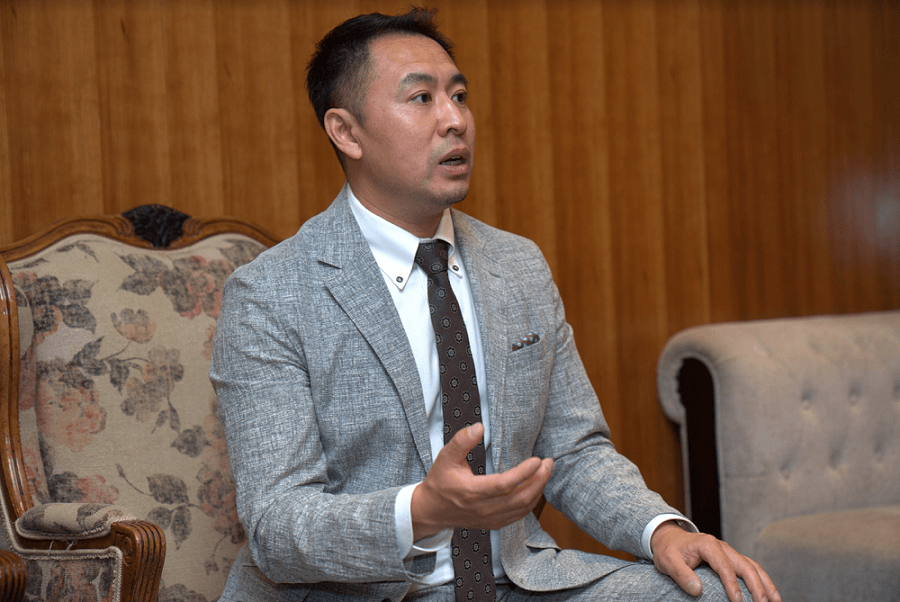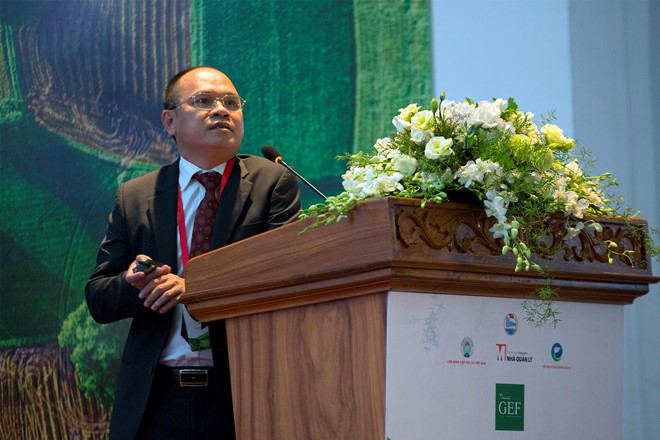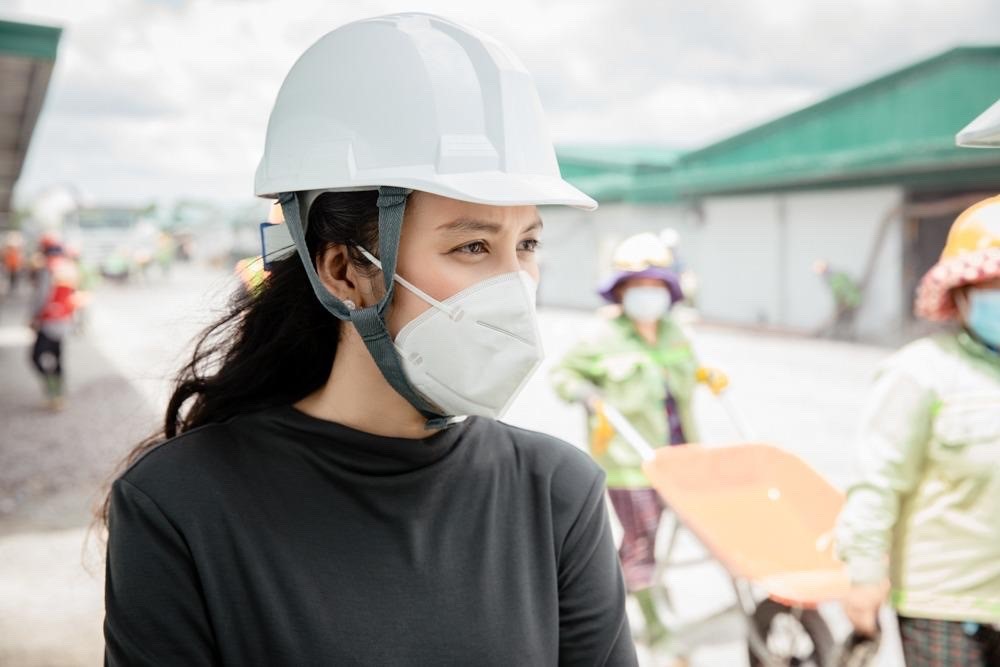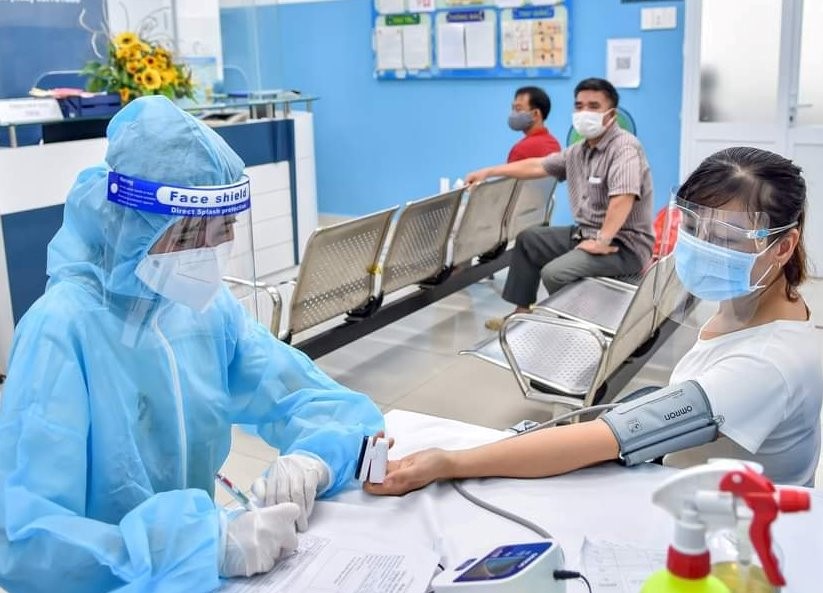HCMC – Van Thinh Phat Group has teamed up with the Green Economics Institute and Medi Hub (Japan) to jointly run a pilot model improving the quality of community health in 21 districts and Thu Duc City in HCMC.
The program is aimed to improve the capacity and quality of medical examination and treatment of the grassroots healthcare system and preventive medicine, contributing to building a modern and highly specialized healthcare system in the city, always taking the initiative in all situations, natural disasters and epidemics to ensure better healthcare for the Vietnamese people.
Van Thinh Phat Group is the financial sponsor and Medi Hub is the solution provider with technology transfer.
The grassroots healthcare system is the “gatekeeper” – the first place where people can approach when they get sick or suffer from diseases. However, the recent fight against the Covid-19 pandemic has exposed the weaknesses of the community healthcare system.
Nguyen Van Vinh Chau, deputy director of the HCMC Department of Health, in an online meeting with 140 voters in the health sector of HCMC’s National Assembly delegation on October 9, 2021, said that there remained weaknesses in human resources, organizational structure, infrastructure and equipment in the public health system from the Center for Disease Control to district medical centers and health stations in wards and communes.
Outdated facilities and equipment, lack of human resources, mentality of underestimating the grassroots healthcare system, and regular choice of the people for medical examination and treatment at the upper levels of the healthcare system have made the capacity of community health facilities even weaker.
In such a situation, in order to contribute to improving the medical examination and treatment capacity of the grassroots healthcare system, the Green Economics Institute has launched the initiative of “Improving the quality of community health”.
The program has timely gained the sponsorship Van Thinh Phat and Medi Hub (Japan). The three institutions will collaborate together to research and implement the pilot model of this project in 21 districts and Thu Duc City in HCMC.
In addition to supporting the grassroots healthcare system in building electronic health records for the health management and monitoring of each household and individual in the area, the initiative also focuses on investment resources at the Center for Disease Control, district-level medical centers, and health stations in wards and communes for improving their capacity to deliver services of medical examination and treatment to the people, through which hospitalization overload could be tackled.

Talking about solutions to improve the quality of medical facilities and overcome the shortage of human resources, Hidetoyo Teranishi, CEO of Medi Hub Company (Japan) said: “If medical staff and small stations have a system which standardizes the online treatment protocol by software, it is the patient database and electronic medical record that will help the medical staff to immediately screen for urgent or minor illnesses, or instantly connect to the patient care line with thousands of medical doctors. It is the most effective support so that medical stations with few staff can still operate effectively even though they are far from central and frontline hospitals.”
Founded in 2014 in Japan with the mission of “connecting the world and creating a healthy future”, improving public health through digital transformation in the medical field, Medi Hub has developed throughout Asia with more than 500 customers and partners who are hospitals, healthcare centers, and high-class nursing homes.
“Medi Hub is ready to connect resources in technology, engineering, professional resources from hundreds of thousands of experienced medical doctors in Japan together with Vietnamese partners to build this model,” said Teranishi.

Le Thanh, chairman of the council of the Green Economics Institutes, said that this method of collaboration is the potential solution.
“Community health must always be ready to respond to emergencies and the State can call for action to use the grassroots medical stations if necessary. In a normal situation, the private sector could bid for provision of medical examination and treatment services at the stations. If there is a better capacity and management system, the community health stations will help reduce the pressure and share the burden of medical examination and treatment that currently major hospitals are struggling day in day out,” said Thanh.

Truong Hue Van, vice chairwoman of Van Thinh Phat Group, explaining the reason why she had chosen this initiative, said Prime Minister Pham Minh Chinh once campaigned for the spirit of “every ward is a fortress”.
“I believe the initiative proposed by the Green Economics Institute is an integral part of this goodwill by the head of the Government. If we can strengthen the local community healthcare system, it means we have built a “firewall” to protect people’s health, improve the quality of life as well as contribute to the national development through the right investment in social infrastructure with the public-private partnership,” Hue Van said.
Professor – Dr. Tran Van Thuan, Deputy Minister of Health, said Vietnam’s grassroots healthcare network has an extensive coverage from every village, hamlet and neighborhood in all regions nationwide. However, people’s healthcare needs have changed a lot, especially with the emergence of the Covid-19 pandemic, which requires the grassroots healthcare system to have strong innovation in both material and financial facilities, human resources and technology.
“More than ever, the Ministry of Health calls for the cooperation of people, communities and businesses to provide initiatives and solutions in service provision, human resources, technology and investment to join with the health sector for improvement of the efficiency and quality in operation of grassroots healthcare facilities, contributing to solving health problems and risks of diseases in the future,” Dr Thuan said.









